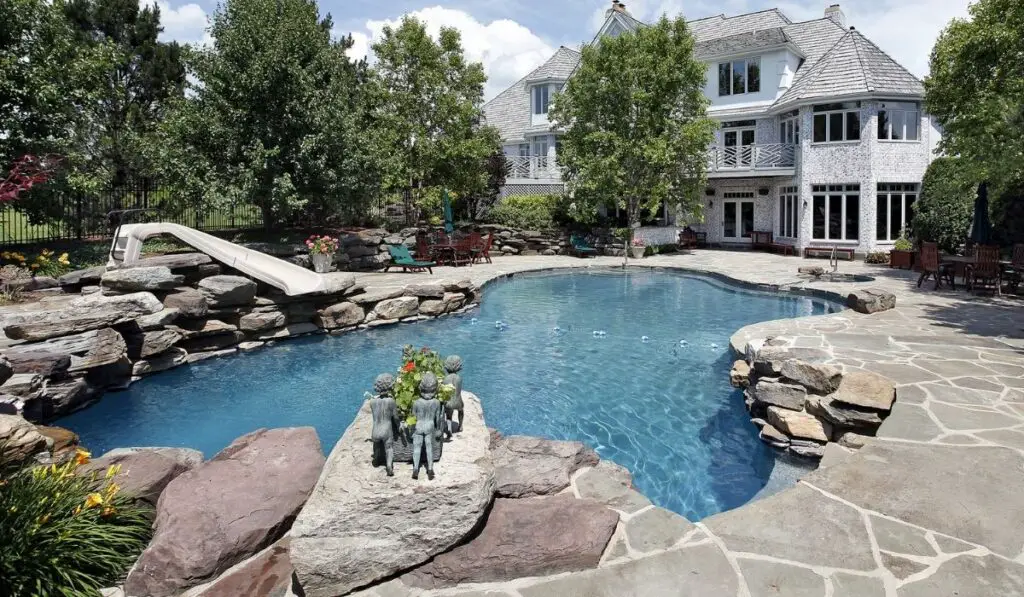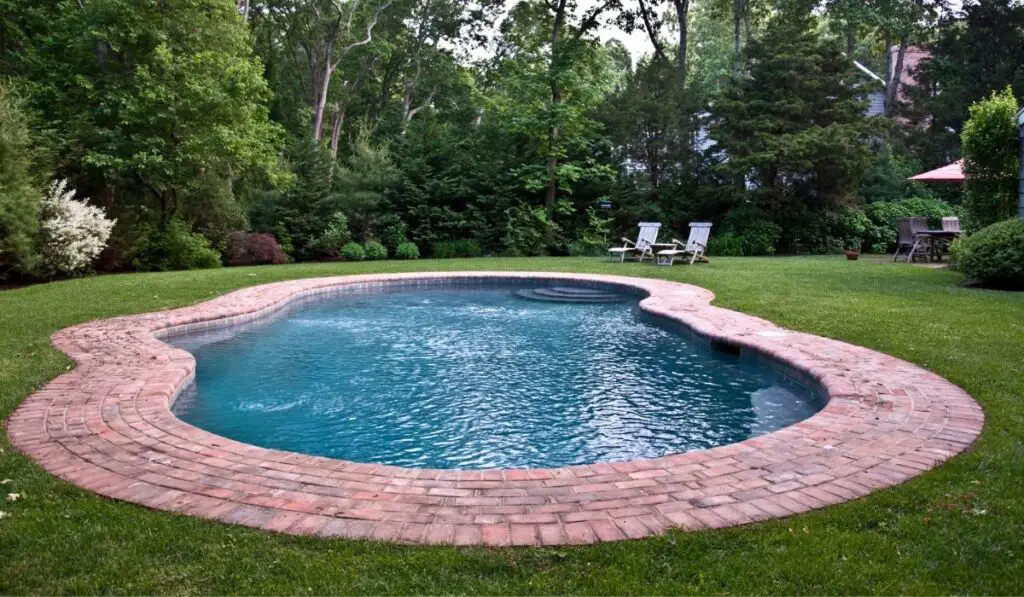If you consider installing a new pool, you may have come across numerous options out there. Maybe even more than you expected to find. Gunite is the most popular kind of material for building pools. Durable and long-lasting, gunite pools are made to fit any size and shape. They can be expensive to install, so it is essential to maintain your gunite pool’s optimal appearance and functionality. But can gunite pools crack?
Gunite pools are extremely durable, but they tend to develop cracks over time. Cracks can be caused by earthquakes, shifting soil, and extreme changes in temperature. If the plaster wears out and develops cracks, it can be repaired by a local professional, and it’s typically worth it.
Swimming pool cracks usually occur in the plaster coat along the surface of your pool body and do not extend into the pool body itself. Most inground pools are built with 6 to 8 inches of shotcrete (a kind of material like concrete spayed on rebar steel reinforcement) or gunite. Let’s look at what causes cracks and how to repair cracks in gunite pools.
Can Gunite Pools Crack?

Yes, gunite pools can crack. Like houses with a slab foundation, the gunite can develop cracks, and the plaster can wear out and require repairs. Damages can occur in any pool, though some pools have more tendencies to develop cracks.
Most concrete pools will eventually develop cracks – especially older pools. Certain factors can increase the chances of a pool cracking, including brand new pools.
If your gunite pool happens to crack all the time, it may result from improper design and installation. When a pool is not well designed or installed, it will be more prone to cracks that extend into the pool shell. Such cracks that extend into the shell will eventually result in serious leaks.
Surface cracks can occur in many pools. These cracks only go through the pool finish or paint. Surface cracks are an eyesore, but they usually don’t cause any leaking. Cracks will only cause substantial leaks if they extend into the thin layer of concrete under your pool finishing.
Always remember that cracks can be a sign of more severe issues. If it’s your first time repairing a crack, it is a good idea to ask a structural engineer or a builder with more experience and get their opinion on whether the crack can be easily repaired or not.
As you understand the typical kinds of cracks that tend to occur in your area, you’ll be able to find and apply effective repair solutions.
How To Fix Cracks In A Gunite Pool
Fixing cracks in a pool requires that you drain the pool. It is advisable to use a clean, dry surface to eliminate all dirt or debris before repairs begin. You can also consider repair kit options like the Pool Patch Plaster Repair Kit (on Amazon). This is great for smaller issues.
For larger cracks, more extreme methods are needed. The cracks are held together by custom fabricated staples which also prevents them from widening. With the staples being held in place, the cracks are repaired and sealed using layers of bonding agents and epoxy.
After the cracks are repaired, you will need to replaster the pool for an even look. In some cases, the damage may only be on the plaster and not reach the gunite of your pool (in which case that kit we linked above is the best option).
In rarer situations, you may need to use the repair kit on a few smaller cracks, but for larger issues, you should also expect for the whole pool to need to be resurfaced after lot’s of cracks are patched, or one or two big ones.
The plaster in the pool also has a max lifetime. The plaster can break down due to chemicals in your pool water, and the plaster basin can also crack and peel due to regular use or direct damage like fallen tree limbs from a storm, for instance.
There are several colors of plaster, so if you’re only looking to give your pool a facelift and not make any repairs, then it may be an excellent idea to replaster.
How To Prevent Cracks In Gunite Pool
If you intend to install a new pool or get pool renovation, you can prevent future pool cracks by doing these three things:
- Examine the soil of the area you’re building the pool and the topography.
- Use the services of an expert to find the most suitable pool design for your home.
- Use a licensed pool contractor to guarantee outstanding quality.
Furthermore, proper pool maintenance, proper installation methods, and optimal pool pH can prevent many gunite pool problems. Simple pool kits like the WWD Swimming Pool Chemical Test Kit (on Amazon) are going to be useful to monitor and maintain the correct chemistry, extending the life of the pool.
Even though they are hardly dangerous, cracks in your concrete pool need to be fixed quickly before becoming a severe problem.
How Long Do Gunite Pools Last?

Gunite isn’t always the most affordable option to build a pool, but it is more cost-effective in the long run since it is highly durable and does not need any significant repairs.
Comparing the different kinds of inground pools, of which gunite, vinyl, and fiberglass are the most common, gunite can be considered to be the longest-lasting and most durable.
A gunite pool that is well designed and well-built should last up to 100 years or more. On the other hand, the lifespan of fiberglass pools is about 25 years, and vinyl pool liners typically need a replacement every six to twelve years.
